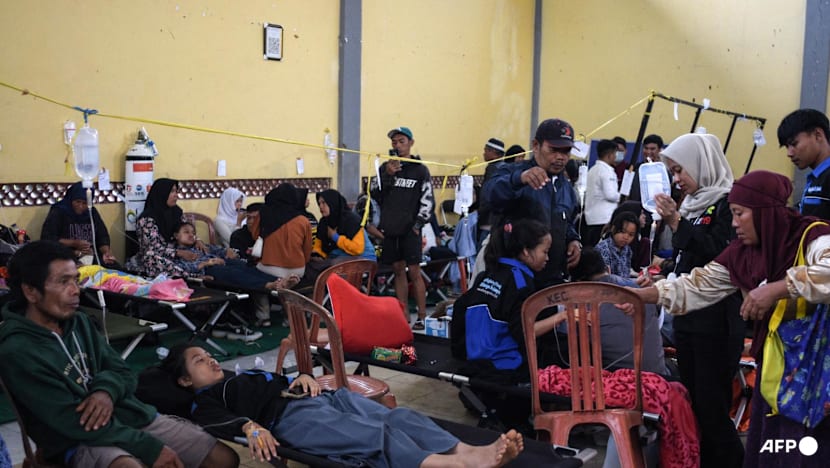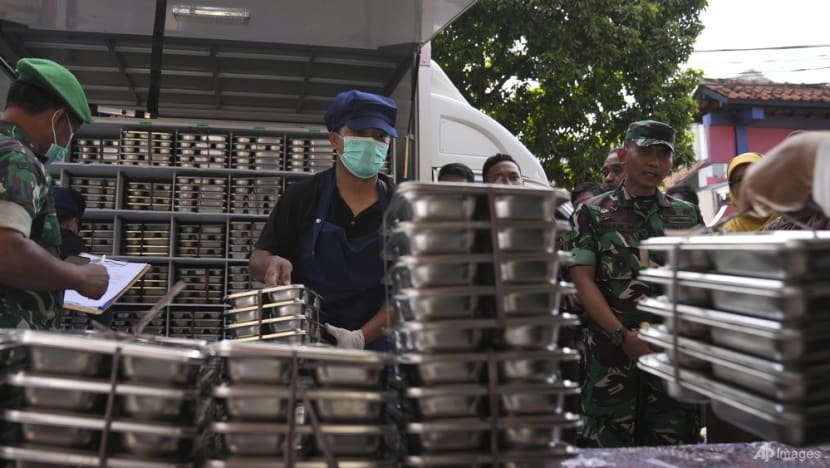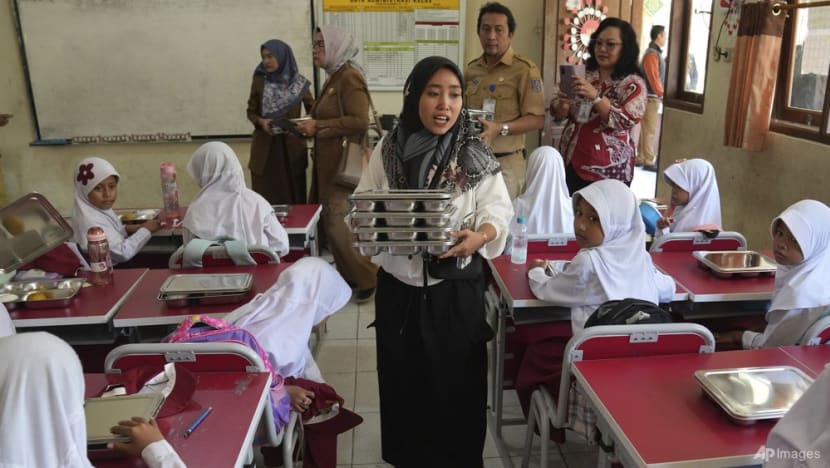Indonesia's ambitious free meals programme under fire after food poisoning outbreaks
More than 9,000 food poisoning cases have been reported nationwide since the initiative began in January.

Students receive treatment at Citalem Public Health Centre after suffering from food poisoning following meals provided by the government’s free meals programme, in Bandung, West Java, on Sep 24, 2025. (Photo: AFP/Timur Matahari)

This audio is generated by an AI tool.
BANDUNG: Indonesia’s free nutritious meals programme is facing scrutiny after more than 9,000 food poisoning cases since its launch in January.
Indonesian President Prabowo Subianto has vowed improvements to his billion-dollar flagship initiative, which targets 82.9 million beneficiaries once fully implemented.
Beyond food safety concerns, budget constraints and logistical challenges have also threatened to derail the plan.
One of Prabowo’s signature campaign pledges, the programme is aimed at enhancing the country’s human resource quality over the long term by improving children’s nutrition.
So far, the nationwide project has reached nearly 30 million recipients.

CONCERNED PARENTS
Once welcomed with enthusiasm, the ambitious scheme is now raising worries among parents and caregivers.
In West Bandung regency, more than 1,000 students fell ill in a series of food poisoning outbreaks last week.
Some families say they no longer feel safe letting their children eat at school.
“We were happy to receive the free nutritious meals from the government,” said Neng Muna, mother of a food poisoning victim.
“My children were happy too, but then this happened and I was shocked. I will no longer allow my children to eat the free meals at school if the programme continues.”
Instead, she will pack lunchboxes for her two children to bring to school.
Another student in West Bandung, 14-year-old Via, suffered from vomiting, nausea, dizziness and stomach aches after eating a school lunch. Her symptoms lasted for several days.
Her grandmother Euis Nurhayati said the scheme had initially helped ease the family’s financial burden.
“But if this is what happens, we are afraid … they should not continue the programme,” she added.
The high number of food poisoning cases overwhelmed the local healthcare system.
Patients were treated in shifts at a temporary command post and clinics. Those with severe symptoms were taken to hospitals, where stretchers lined the hallways to handle the influx.
Ambulance drivers told CNA they were exhausted after long hours and numerous trips ferrying victims.
STEPPING UP MEASURES
Medical professionals said the free meals initiative must be re-evaluated.
“Hopefully, the programme will be temporarily halted,” said Neng Siti Djulaeha, director of Ciliin General Hospital.
“There should be experts involved in the production and preparation of the meals.”
At least two kitchens in the West Bandung area were temporarily closed following the outbreak. That number soon grew to more than 50 kitchens across the country.
The closures were followed by investigations into certification and food safety standards.
Tests on food samples detected dangerous contaminants, including E. coli, Salmonella and other bacteria.
In one alarming incident in Batam, students found glass shards in their rice.

Following mounting pressure and concerns over food safety, officials from the National Nutrition Agency apologised, admitting negligence and weak oversight.
Local authorities said they would increase surveillance of kitchens involved in preparing and distributing meals.
Despite calls to suspend the programme, Prabowo insisted the initiative will continue and that the shortcomings will be addressed.
“All kitchens must be equipped with powerful washing tools that use ultraviolet, gas or very hot water,” he said.
“There must be water filters, and food test kits must be made available before food is delivered. We will fix this immediately. All kitchens must also have trained cooks.”


















